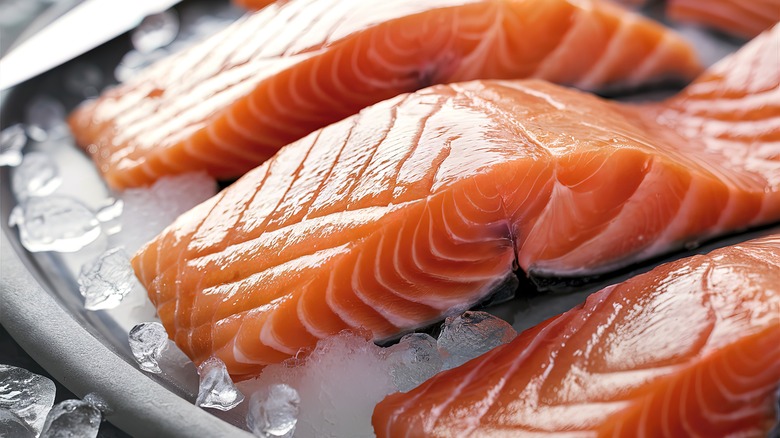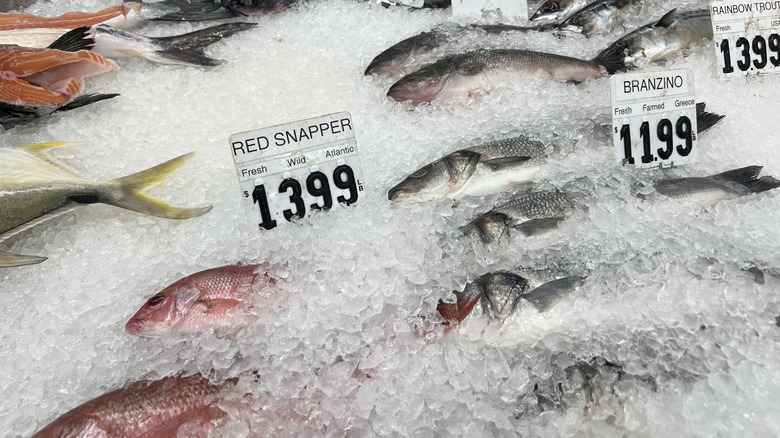How Restaurants Store Fish To Keep It Fresh As Long As Possible
For those of us who love fish, we know how important it is for it to be fresh and cared for when it arrives on our plate. In fact, many people who don't like fish feel that way because of a bad experience with a dish that was either stored improperly or prepared incorrectly.
Now, with fish becoming more and more popular among Americans each year, knowing exactly how to handle raw fish is a necessity in the restaurant world. It's one of the reasons why some people don't trust small-town sushi restaurants. Beyond just understanding how to keep the fish fresh for as long as possible, you also must know precisely how long even the best-kept piece of raw fish can last in your kitchen.
Luckily, we here at The Takeout asked Jason Pfeifer, culinary director over at City Harvest (which will be hosting its signature fall tasting event BID 2024: CHTV! on October 29), what the best protocol for keeping raw fish fresh in a restaurant setting was. In his answer, he informed us that cold conditions are key when it comes to keeping a fish as fresh as possible. And believe us, you'll know if your fish has gone bad.
Keep raw fish fresh using cold temperatures
Before fish enter the stage in which they get cooked or prepared to be served to the customer, restaurants must know how to store the fish itself and for how long. Starting with the temperature, fish has a pretty hard upper limit when it's awaiting its time to shine.
"Fish should all be stored below 38 degrees," Pfeifer warned, and other experts agree. The USDA says roughly 40 degrees is the absolute maximum temperature at which fish and crawfish can be stored safely. Ultimately, the consensus remains that colder temperatures protect fish better, and anything close to room temperature is far too warm for the food's well-being. Pfeifer added, "Storage on ice will maintain quality the best. Depending on the type of fish and the freshness of it, you can safely preserve fish for days."
What's key is that most fish can remain fresh for longer than 24 hours if stored correctly, though it does depend on the fish. While salmon and tuna are known to last two to three days longer than fresh mackerel or bluefish, most agree that you should use fish within 48 hours of storing it to maintain its freshness. Furthermore, in the event that you are looking to use this advice in your personal life, freezing your fish in a freezer is the last resort if you don't think you'll utilize it in time. But while it takes away the freshness factor, fresh fish isn't always better than frozen.

